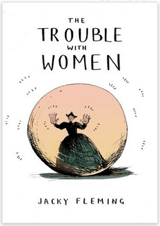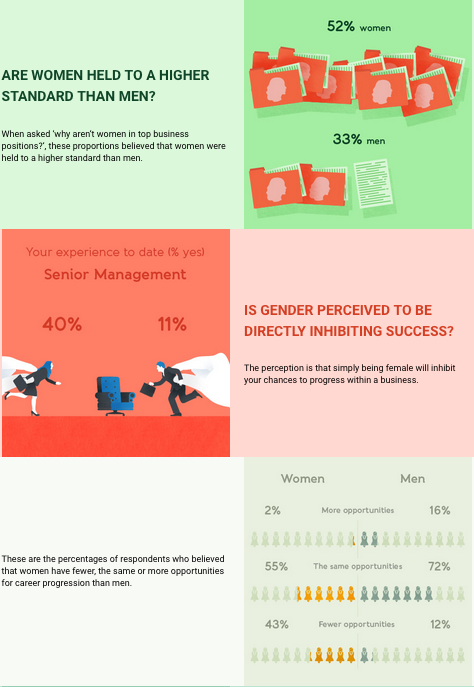
"History must be learned in pieces. This is partly because we have only pieces of the past...which give us glimpses of what has been but never the whole reality."
Thomas Cahill, author:
Sailing the Wine Dark Sea
This quote about the fragmentary nature of history reminded me of the photo I took of the goddess Artemis in the museum on the Greek Island of Delos (her birthplace). Artemis, the huntress, was one of the most widely venerated ancient Greek goddesses and seeing her I reveled in the thought that in certain cultures deities could be - and still can be - women.
In the U.S. and many other countries around the world we are very far from such cultures and far from any historic understanding of how the status of women has changed over time. Instead, as Marianne Cooper of Stanford University's Clayman Institute for Gender Research has said,
We spend much more time giving girls pep-talks than we do talking to them about sexism. Our need to encourage them over and over again... actually renders invisible the reasons that we need to be so encouraging in the first place.
The invisibility (dare I say denial) of sexism runs deep.
The Trouble With Women
The reason for sexism's invisibility is adeptly summarized by Jacky Fleming in her quirky, hilarious and slightly sad book The Trouble with Women (available from Amazon.com and Amazon.co.uk)
“In the olden days there were no women, which is why you don’t come across them in history lessons in school”
By the less-than-olden days, like the 1870s, women who dared to step out into the working world were still encountering mindsets like that of Harvard professor Dr. Edward Clarke, who said that
“...it was possible for a girl to study hard and do well in everything, but it would damage her health for the rest of her life, and her children would be shriveled.”
And lest you think that Clarke’s attitude is totally outdated, the “can women have it all?” debates are still raging on today. Women are still getting the message that a vibrant career will damage their health and their children. “Why women can’t have it all” is a popular search term that turns up loads of depressing results, each one hammering home the message that working hard at a career will mean that women have to give up something else, something vital. (Drew Barrymore says so. Sarah Silverman says so. Anne-Marie Slaughter says so.)
 The Trouble With Women highlights what we are still teaching our boys (that history, science and intellect are mainly their domain) and what we are still implicitly teaching our girls (that they are substantively absent from history, science and intellect). The admirable women who surmounted these barriers (several of whom are featured) remain uncelebrated. The sexism that creates these absences has been—and still is—both overt (laws) and subtle (prejudicial mindsets). And despite the many advances that we’ve made as a society, this sexism remains largely unaddressed. Instead we often focus on positive initiatives and pep talks to convince our girls that they can be whatever they want to be.
The Trouble With Women highlights what we are still teaching our boys (that history, science and intellect are mainly their domain) and what we are still implicitly teaching our girls (that they are substantively absent from history, science and intellect). The admirable women who surmounted these barriers (several of whom are featured) remain uncelebrated. The sexism that creates these absences has been—and still is—both overt (laws) and subtle (prejudicial mindsets). And despite the many advances that we’ve made as a society, this sexism remains largely unaddressed. Instead we often focus on positive initiatives and pep talks to convince our girls that they can be whatever they want to be.
Pep Talks
I get it: if we can't "fix" the culture, let's "fix" the women. That means working hard to convince our girls that they can be whatever they want to be. We want them to be confident, to shoot for the moon and end up among the stars!
As a result, young women enter the business world these days largely believing that they can be anything and blind to the gender dynamics that create the overt and subtle barriers to them. This means that many women run headlong into nasty wake-up calls. (Why else are so many “why women can’t have it all” thought pieces penned by mid-career women?) Over time, most women come to realize that their experiences are different than those of their male colleagues, but men rarely see these differences.
For example, according to an infographic from our friends at Towergate Insurance UK, 40% of women think that gender directly inhibits their success, while only 11% of the men surveyed thought that being female was a workplace drawback.

This belief that the playing field is level results in many men thinking that interventions to benefit women are unwarranted and, frankly, unfair to them. As suggested by Thomas Cahill, women and men have been encountering different fragments of history.
Managing Gender Dynamics
If your managers need clear insights into gender barriers and how to minimize their adverse impacts, contact us. Our groundbreaking global research and collaborative approach have met with success with managers (women and men) around the world.
If you're looking for straight talk on effective strategies to enable women to navigate the gender dynamics they encounter, we can help! One of our programs provides tips for effectively, calmly and strongly dealing with the 5 most common dynamics (as reported by male managers around the globe).







